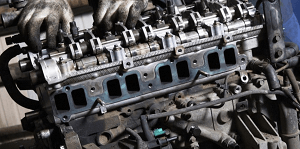UK Off-roading ›› Mechanical ›› Repairs ›› Diesel Engine Maintenance
Diesel Engine Maintenance Checklist
The main reasons owners choose to run diesels, instead of their gasoline counterparts, is for long-term durability and extended life expectancies (in excess of one million miles).
This section explains how to perform basic diesel engine maintenance yourself with tips for avoiding some of the common problems when servicing diesel-powered vehicles.
What Maintenance is Needed for Diesels?
Even though diesel engines can last beyond thirty years, they need to be maintained at regular intervals. As a result, a diesel engine will need to have frequent oil and fuel filter changes.
Furthermore, some will need to have a periodic replenishing of diesel exhaust fluid (DEF). Urea is a waste product that reduces emissions of nitrous oxide.
Even so, if you know how a petrol engine works, you will be following a similar maintenance schedule for a diesel-engine car.
Because diesel engines do not use ignition systems, you can run them for long periods without having to perform any major repairs.
So, one of the key advantages of diesel cars is not having to replace engine parts so often (e.g. distributor caps, spark plugs).
Even though there is no need for ignition tune-ups, following this diesel engine maintenance checklist will help to ensure smooth functioning and longevity.
1. Changing Dirty Air Filters
There are very few differences between diesel air filter setups and those used in gas-powered vehicles. So, after opening the engine compartment, you will find the filters in the cold air collector box.
The owner's manual should provide you with the recommended replacement intervals for diesel air filters. If not, replace dirty air filters every three (3) years or thirty thousand miles (during normal driving conditions).
Obvious signs of a dirty air filter include:
- A decrease in normal running performance (e.g. horsepower).
- Black smoke coming from the exhaust pipe (or flames).
- Engine noise or misfires.
- Visible dirt particles when inspected (including a bad smell).
Note: If you understand how a diesel engine works you will already be aware that they experience high intake pressures. As a result, the key role of air filtering systems is cooling the air and filtering out unwanted particles (e.g. dust).
What Does a Dirty Air Filter Do to a Diesel Engine?
Running a diesel with a filthy air filter is likely to compromise power output for the engine. This is because a clogged filter will make it more difficult for the motor to draw in clean air.
As a result, choking an engine with this kind of 'breathing' difficulty can drain the power which will result in a loss of power.
2. Replacing Diesel Fuel Filters
It is important to be aware that diesel engines will have two (2) separate fuel filters. You will find the primary filter located between the engine and the fuel tank. Whereas, the secondary filter is closer to the engine to perform a final cleaning.
 Changing a fuel filter is one of the easier car repairs and maintenance tasks you can do yourself (e.g. to save money).
Changing a fuel filter is one of the easier car repairs and maintenance tasks you can do yourself (e.g. to save money).
- First, you need to unscrew the old filter and completely remove it from the port.
- Then, moisten the gasket of the new fuel filter before screwing it into the appropriate location.
You can get a new supply of fuel circulating by bleeding any air bubbles out of the fuel system. Thus, make sure the fuel tank is close to full so you avoid moisture formation.
Note: Changing diesel fuel filters helps to avoid condensation building up and entering into the fuel injectors.
3. Change Diesel Lubricating Oil
The main function of lubricating oil in a diesel engine is to keep the parts moving in a smooth manner. Besides that, it also helps to draw away heat and prevent the buildup of carbon deposits. So, it is important to change lubricating oils at regular intervals (e.g. every 3,000 miles).
Checking the dipstick at regular intervals (e.g. every few weeks) will show whether the engine is running low on oil. Information in the owner's manual will confirm which type of lubricant you should use.
Note: The A to Z car terminology section contains more information about Wynn's Super Charge Oil Treatment and how it can restore engine compression.
4. Bleeding Air from Diesel Fuel Lines
You can have problems starting a diesel engine if there is an airlock in the fuel (e.g. after changing fuel filters or when running out of fuel). If this happens, you should bleed the engine by:
- Opening the fuel supply valve (located within the fuel delivery system).
- Using the manual fuel pump to remove the bubbles and any vapour.
- Pumping the fuel until it runs steadily and without any visible bubbles.
Some diesel engines will have a system for self bleeding. Even so, it is important to avoid the delay caused when fuel is unable to get injected at the appropriate pressure.
5. Draining Water from Diesel Fuel Filter
It is easy to contaminate diesel fuel with water (it absorbs water better than gasoline). This is why most vehicles that run on diesel contain a water separator located on (or close to) the fuel filter.
Even though they are 'self-cleaning', you need to drain them 'manually'. You can achieve this using a drain valve (also known as a petcock).
Note: Another section explains how to drain water from fuel filter diesel in greater detail with information about the benefits of installing a water trap if your vehicle doesn't have one.